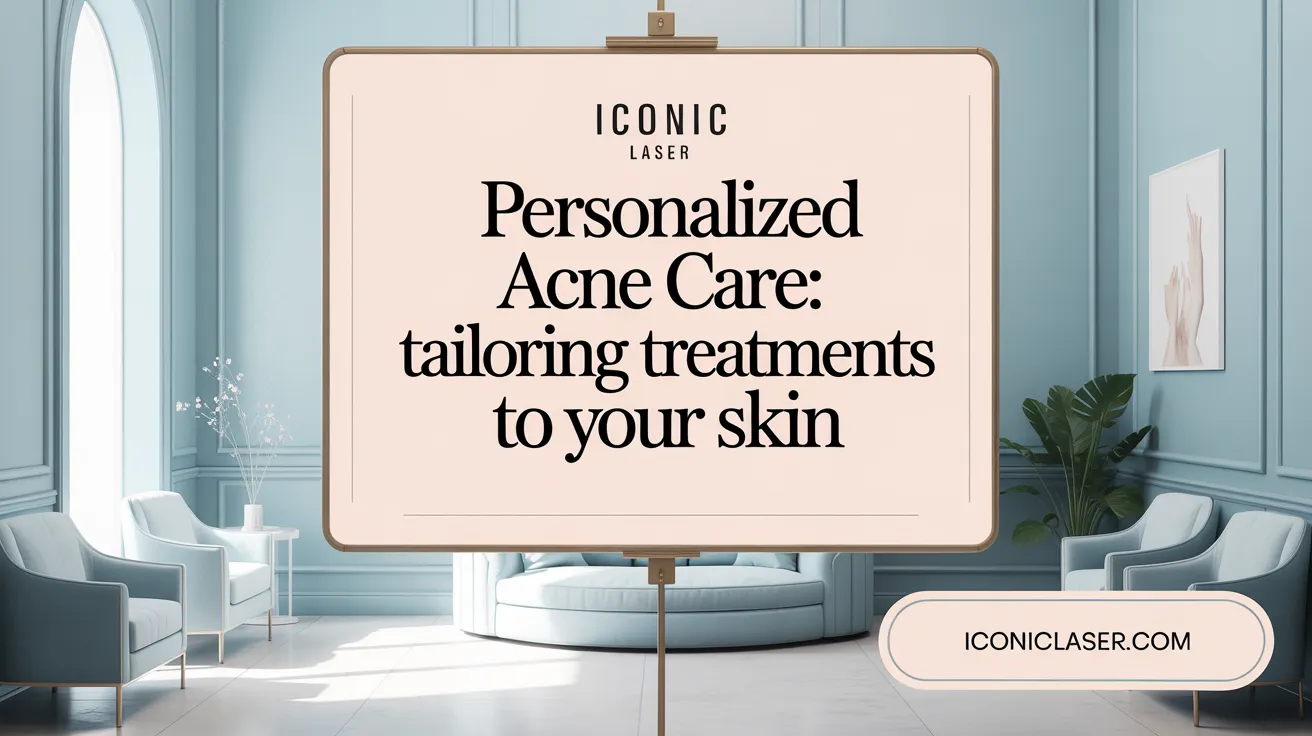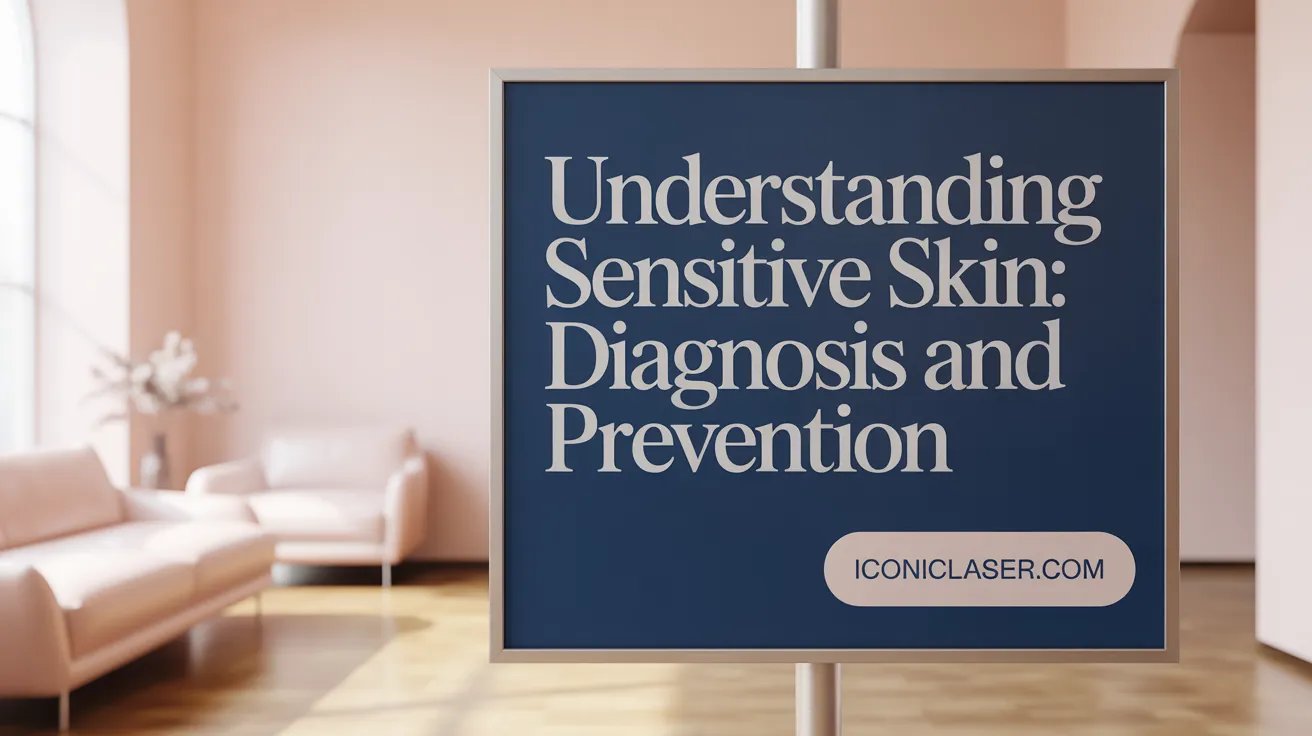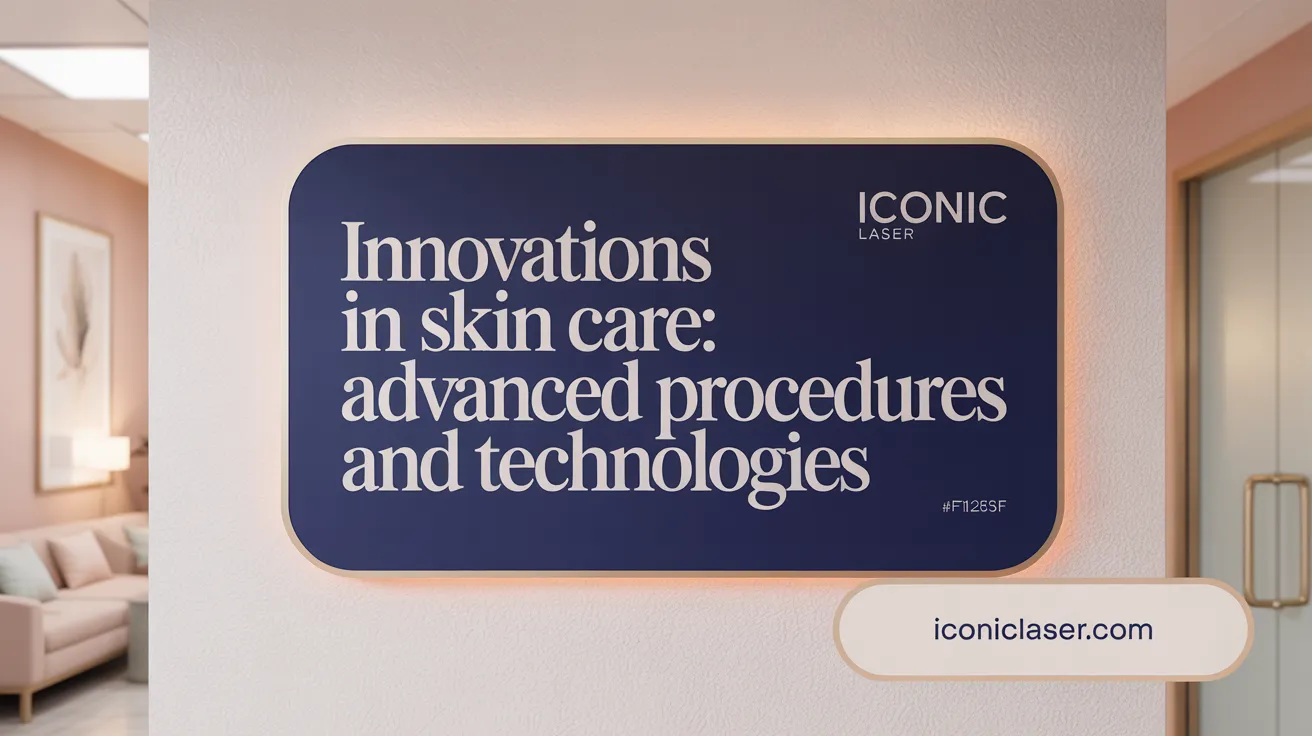Understanding Acne and Sensitive Skin Dynamics
Acne and Sensitive Skin: Definitions and Symptoms
Acne is a prevalent skin condition characterized by the appearance of pimples, blackheads, whiteheads, cysts, and nodules, primarily affecting areas such as the face, forehead, chest, shoulders, and upper back. Its manifestations can vary from mild to severe, sometimes leading to scarring and psychological impacts.
Sensitive skin, on the other hand, reacts negatively to environmental factors and certain cosmetic or personal care products. Common symptoms include dryness, redness, itchiness, irritation, and visible discoloration.
The Role of Accurate Diagnosis
Accurate diagnosis is essential to differentiate acne from other skin conditions like hidradenitis suppurativa or perioral dermatitis. It guides dermatologists in tailoring effective treatment plans.
Similarly, sensitive skin requires professional evaluation through physical examination and patient history to identify triggers and possible underlying conditions such as eczema or rosacea.
Causes and Manifestations of Skin Sensitivity
Sensitive skin can arise from genetic predispositions, environmental factors like pollution and UV radiation, and the use of harsh skincare ingredients. Symptoms may fluctuate over time, underscoring the importance of personalized management strategies.
This comprehensive understanding ensures that patients receive treatments that address both their acne and sensitivity concerns, promoting healthier and more resilient skin.
Foundations of Acne Treatment: Tailoring Therapies to Individual Needs

Role of Dermatologists in Acne Diagnosis and Differentiation from Similar Conditions
Accurate diagnosis by dermatologists is critical in distinguishing acne from conditions like hidradenitis suppurativa, perioral dermatitis, and folliculitis. This ensures that treatment is appropriately targeted to the specific condition affecting the patient. For more on Acne diagnosis and treatment and Differentiating acne from other skin conditions, visit Mayo Clinic and the American Academy of Dermatology resources.
Use and Mechanism of Topical Retinoids, Antibiotics, and Acids
Topical retinoids, including tretinoin, adapalene, and tazarotene, work by unclogging pores and promoting skin cell turnover, effectively treating blackheads, whiteheads, and mild to moderate acne. Topical antibiotics such as clindamycin paired with benzoyl peroxide reduce bacterial growth and inflammation, often used alongside retinoids for improved outcomes. Additionally, acids like salicylic acid prevent follicle plugging while azelaic acid treats both acne and discoloration with formulations safe for sensitive patients. Learn more about Topical retinoids for acne, Clindamycin with benzoyl peroxide, and Salicylic acid in acne care.
Importance of Patient Consistency in Treatment
Acne therapies typically require several weeks to months before noticeable improvements appear, demanding consistent application and adherence to prescribed skincare routines. Patience and regular follow-up with dermatologists ensure adjustments can be made for maximum benefit and tolerance. For guidance on effective treatment adherence and managing expectations, refer to Dermatologist-Recommended Acne Treatments.
Considerations for Treatment Duration and Combination Therapies
Treatment plans often combine multiple agents targeting different acne causes to enhance effectiveness and reduce side effects. Oral antibiotics are prescribed for limited durations to avoid resistance, while hormonal therapies assist in managing hormonal acne in women. For severe or resistant cases, isotretinoin may be used under close monitoring. Complementary procedures like chemical peels and laser therapies can further rejuvenate skin. Detailed information about Oral antibiotics for moderate to severe acne, Hormonal acne treatments, Isotretinoin for severe acne, and Additional acne procedures provide comprehensive insights.
Advanced medical aesthetic clinics also offer cutting-edge skin rejuvenation techniques such as fractional laser resurfacing, picosecond laser treatment in dermatology, and radiofrequency microneedling benefits. These stimulate collagen production and improve skin texture, complementing acne treatments with personalized post-care plans. Such comprehensive approaches underscore the importance of expert dermatological care tailored to individual skin profiles for effective and safe outcomes. Explore options for Medical Aesthetics in Troy Michigan and Advanced Dermatological Treatments for further information.
Specialized Strategies for Managing Hormonal and Severe Acne
What hormonal factors influence acne in adults?
Hormonal acne primarily results from fluctuations in androgen hormones, such as testosterone, which increase sebum production and clog pores. This form of acne is common in adults, particularly women in their 20s and 30s, and may be triggered by menstrual cycles, pregnancy, menopause, or discontinuation of birth control. Stress, diet, and lifestyle also contribute to the complexity of hormonal acne. For more details, see Hormonal acne and Hormonal acne treatments.
How are hormonal therapies used to treat acne?
Hormonal treatments are effective for adult women with hormonal acne. These include combination oral contraceptives containing estrogen and progestin, which help regulate hormonal fluctuations. Anti-androgen agents like spironolactone block the effect of androgens on sebaceous glands, reducing oil production and inflammation. Both therapies require professional monitoring to balance benefits and side effects. For comprehensive information, visit Hormonal therapies for acne and Hormonal acne treatments.
What is the role and required monitoring of isotretinoin?
Isotretinoin is reserved for severe or treatment-resistant acne cases. It significantly reduces sebum production and inflammation but carries risks like depression and birth defects. Monitoring involves regular blood tests and mental health evaluation throughout treatment to ensure safety. More information can be found at Isotretinoin for severe acne and Isotretinoin treatment and monitoring.
What adjunct procedures support acne treatment?
Adjunctive therapies such as corticosteroid injections can rapidly reduce swelling of cystic lesions. Chemical peels and laser treatments help improve skin texture and reduce scarring by stimulating collagen. These procedures are often combined with medication-based treatments for enhanced results. See more about Additional acne procedures and Acne scar treatments.
How can facial enhancement procedures improve appearance at a medical aesthetic clinic?
Facial enhancement procedures like dermal fillers, hyaluronic acid injections, and surgical options including eyelid and brow lifts restore youthful volume, reduce wrinkles, and refine facial contours. At clinics such as those in Troy, Michigan, treatments are personalized and conducted by highly trained medical professionals focusing on safety and natural-looking results. Learn more about Medical Aesthetics in Troy Michigan.
Addressing Skin Sensitivity: Diagnosis, Management, and Prevention

Common symptoms and causes of sensitive skin
Sensitive skin often manifests with symptoms such as redness, dryness, itchiness, flakiness, burning sensations, and skin discoloration. These reactions can be triggered by environmental factors like pollution and UV exposure, harsh skincare products, or even genetic predispositions. Additionally, conditions including acne, eczema, rosacea, and psoriasis can contribute to skin sensitivity. For a detailed overview, see Sensitive skin overview.
Diagnostic methods including physical exam and allergy testing
Diagnosis generally begins with a detailed physical examination and review of personal history relating to skin reactions. When necessary, dermatologists may perform additional tests such as skin biopsies or allergy patch testing to identify specific irritants or underlying conditions. This comprehensive approach ensures an accurate assessment to tailor management effectively. More information is available at Diagnosing sensitive skin and Treating Skin Sensitivity.
Lifestyle adjustments and product recommendations for sensitive skin
Managing sensitive skin includes lifestyle changes such as maintaining a balanced diet, adequate hydration, and well-regulated sleep to support skin health. Using gentle, fragrance-free skincare products formulated with soothing ingredients like hyaluronic acid and ceramides is recommended. Gentle cleansing routines and mineral-based sunscreens offer protection without irritation. Avoiding rapid shifts in skincare products and performing patch tests prior to full application can further minimize adverse reactions. Guidance can be found at Skincare for sensitive skin and Sensitive skin dos and don’ts.
Preventive strategies to avoid flare-ups and irritation
Preventing sensitivity flare-ups involves identifying and avoiding known triggers, including certain chemicals, fragrances, and harsh exfoliants. Wearing protective clothing, minimizing sun exposure, and using environmental shields help reduce irritation from external factors. Regular consultation with dermatology professionals enables personalized prevention plans that adapt as sensitivity levels change over time. For more on managing sensitive skin, see Managing Sensitive Skin in Fort Collins and Professional consultation for sensitive skin.
Women's wellness treatments available at medical aesthetic clinics
Medical aesthetic clinics, particularly in the women's wellness domain, offer treatments such as hormone therapy to balance hormonal fluctuations, vaginal rejuvenation procedures for improving tissue health, pelvic floor therapy to strengthen muscles, and comprehensive wellness plans integrating nutrition and skin health. These treatments complement routine dermatologic care to support overall skin and reproductive health. Find out more at Medical Aesthetics in Troy Michigan.
Integrating Customized Skincare Routines for Acne and Sensitivity

Why Gentle, Non-Comedogenic Products Matter
For individuals with sensitive or acne-prone skin, choosing gentle, non-comedogenic products is essential to avoid further irritation and clogged pores. These products are formulated to be less likely to trigger skin reactions or exacerbate acne, helping maintain skin health while effectively managing symptoms. Learn more about Sensitive skin overview and Dermatologist-Recommended Acne Treatments.
Key Ingredients for Soothing Skin
Formulations containing niacinamide, hyaluronic acid, and antioxidants are particularly beneficial. Niacinamide helps reduce inflammation and strengthens the skin barrier, hyaluronic acid supports hydration without heaviness, and antioxidants protect skin from environmental damage, all contributing to a calmer, healthier complexion. For detailed guidance, see Skincare for sensitive skin and Oak Dermatology Troy Michigan.
Minimizing Irritation Through Patch Testing and Gradual Use
To reduce the risk of irritation, especially when introducing active ingredients such as retinoids or acids, patch testing new products on a small skin area for 7 to 10 days is recommended. Gradual introduction into the daily routine allows skin to adjust, minimizing adverse reactions and improving tolerance. For advice, refer to Topical retinoids for acne and Treating Skin Sensitivity.
Sunscreen Choices and Mild Exfoliation for Skin Protection
Physical (mineral-based) sunscreens are often better tolerated by sensitive skin, providing effective UV protection with less risk of irritation compared to chemical sunscreens. Incorporating mild exfoliation with low-dose beta-hydroxy acids (BHA) can help clear clogged pores gently, supporting clearer skin without damaging the skin barrier. See recommendations on Benefits of mineral-based sunscreens and Salicylic acid in acne care.
Customized skincare plans developed by dermatology professionals emphasize these practices to optimize treatment outcomes for both acne and sensitive skin, prioritizing safety and patient comfort. More on Personalized Medical Aesthetic Plans Troy and Dermatologist Consultation for Acne.
Technological and Procedural Enhancements in Acne and Sensitive Skin Care

Use of Light Therapies, Chemical Peels, and Microneedling to Manage Acne and Skin Sensitivity
Advanced procedures such as light therapy for acne, chemical peels in acne management, and microneedling are increasingly used to complement traditional acne treatment options. Light therapies target acne-causing bacteria and reduce inflammation without systemic side effects, while chemical peels exfoliate the skin, removing dead cells and promoting new cell growth that improves both acne and sensitive skin concerns. Microneedling stimulates collagen production, enhancing skin texture and reducing post-acne scarring.
Safety and Efficacy Considerations with Adjunctive Procedures
Safety is paramount when utilizing these procedures. Treatments must be personalized and performed under dermatological supervision to minimize risks such as irritation or worsening of sensitive skin conditions. The efficacy of these methods depends on factors like skin type, acne severity, and individual sensitivity, requiring careful patient selection and monitoring.
Role of Dermatologist-Supervised Pimple Extraction in Preventing Scarring
Professional pimple extraction procedures by dermatologists help safely remove comedones and cysts, reducing inflammation and accelerating healing. This process, when done aseptically, prevents tissue damage that can lead to scarring. Patients benefit from reduced downtime and improved skin appearance post-treatment.
Benefits of Combining Treatments for Optimized Results
Combining topical medications with procedural treatments like chemical peels or light therapy enhances overall outcomes by addressing multiple acne factors simultaneously. Tailored combination plans also enable a balance between effectiveness and minimizing skin irritation, which is vital for sensitive skin sufferers. Direct dermatologist involvement ensures ongoing assessment and adjustment to optimize treatment efficacy and patient satisfaction.
Patient-Centered Care and Follow-Up at Medical Aesthetic Clinics

Personalized Treatment Plans Tailored to Skin Type and Lifestyle
Medical aesthetic clinics prioritize customized care, developing treatment plans that address an individual's unique skin type, lifestyle, and specific concerns. This approach ensures better outcomes, particularly important for conditions like Acne diagnosis and treatment or Sensitive skin overview where triggers and responses vary.
Safety Protocols and Provider Training Exceeding Industry Standards
Clinics emphasize safety, with providers receiving training that far exceeds industry norms — up to five times more in some cases. This rigorous preparation minimizes risks and enhances treatment efficacy.
Convenience of In-Home and Office Treatments with Direct Provider Access
Innovative services include offering treatments such as Botox Dysport Xeomin Treatments Troy, dermal fillers, chemical peels, and microneedling directly in patients’ homes or offices. This convenience is paired with direct post-treatment access to providers, fostering timely follow-up and personalized care.
Long-Term Management Strategies for Sustained Skin Health
Beyond immediate interventions, clinics support long-term skin health through consistent follow-up and adaptable care plans. This helps maintain results and manage chronic conditions, such as Hormonal acne or Treating Skin Sensitivity, effectively over time.
| Feature | Description | Benefit |
|---|---|---|
| Personalized Care | Tailored plans based on skin type and habits | Enhanced treatment outcomes |
| Provider Training | Extensive, beyond industry standards | Improved safety and expertise |
| In-Home & Office Treatments | Services delivered at patient convenience | Greater accessibility and comfort |
| Direct Provider Access | Post-treatment communication | Prompt follow-up and adjustments |
| Long-Term Management | Ongoing support for chronic skin issues | Sustained health and appearance |
Body contouring treatments commonly offered at advanced medical aesthetic clinics include non-invasive options such as CoolSculpting for targeted fat reduction, radiofrequency microneedling benefits therapy for skin tightening, and lipolysis methods that promote effective body shaping with minimal downtime.
Achieving Clearer, Calmer Skin Through Expert Customized Care
Dermatologist-guided personalized skincare plans are crucial for effectively managing acne and sensitive skin.
By consulting with board-certified dermatologists, patients receive tailored treatment strategies that address their unique skin types and conditions. This personalized approach enhances treatment outcomes and minimizes side effects.
Combining medical treatments, procedural options, and lifestyle adjustments offers comprehensive benefits.
Medications such as topical retinoids, antibiotics, and hormonal therapies reduce inflammation and bacteria. Complementary procedures like chemical peels or light therapy help clear persistent blemishes and improve skin texture. Additionally, lifestyle changes—like gentle cleansing routines, stress management, and avoiding irritants—support long-term skin health.
Seeking professional consultation encourages safe, effective, and convenient care.
Experts provide ongoing support, adjust treatments as needed, and prioritize patient safety with advanced monitoring. Individuals facing acne or sensitive skin challenges are encouraged to pursue dermatological guidance to achieve clearer, calmer skin with confidence.
